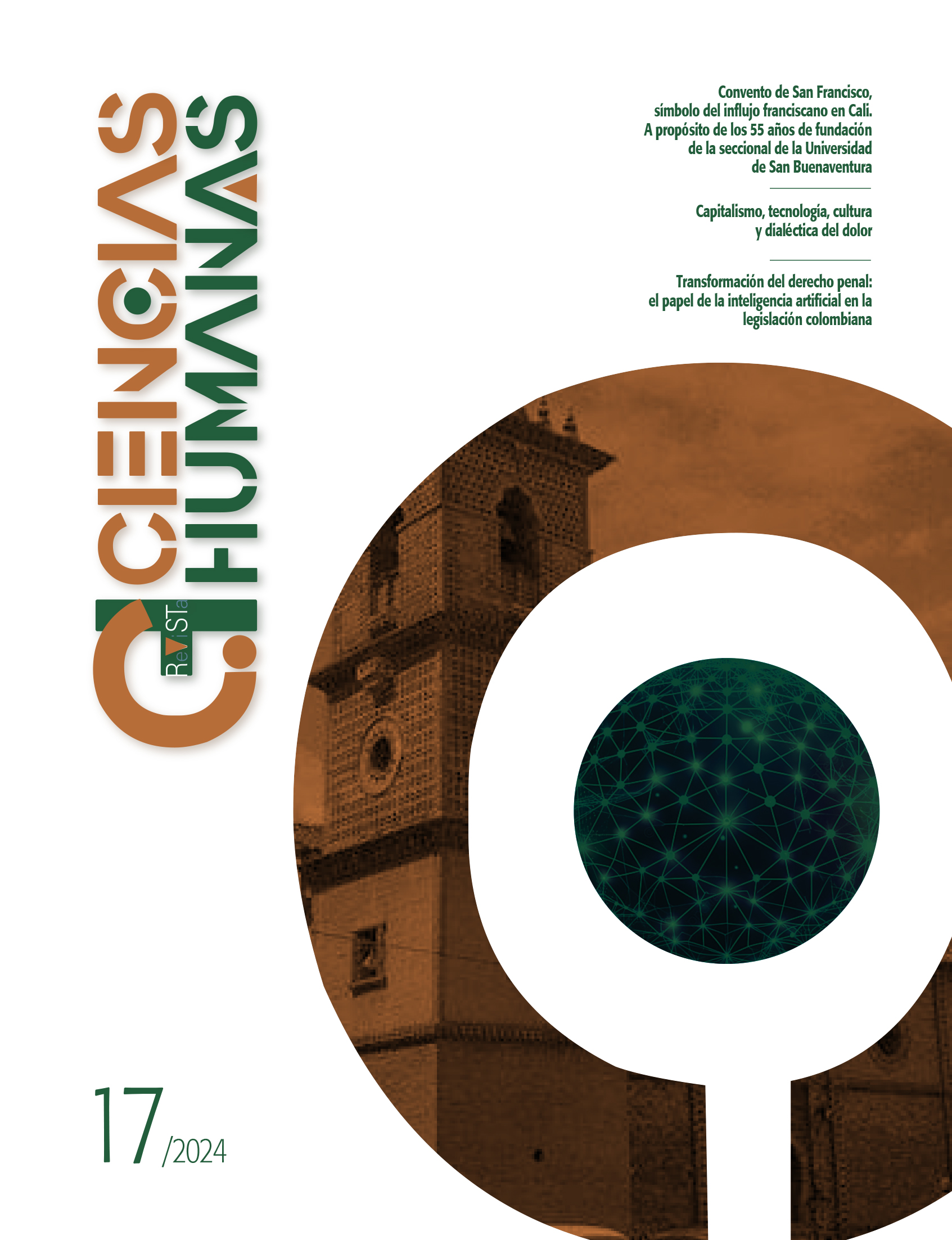The Revista Ciencias Humanas provides open and immediate access to its content, based on the principle of offering the public free access to research to aid in the greater global exchange of knowledge.
Except as otherwise stated, the content of this journal is licensed under a Creative Commons Attribution-NonCommercial-NoDerivatives 4.0 International (CC BY-NC-ND 4.0) license available at http://creativecommons.org/licenses/by-nc-nd/4.0/.
- Attribution. You must give appropriate credit, provide a link to the license, and indicate if changes have been made. You may do so in any reasonable manner, but not in a way that suggests that the licensor endorses you or your use.
- NonCommercial. You may not use the material for commercial purposes.
- NoDerivatives. If you remix, transform, or build upon the material, you may not distribute the modified material.
- No Additional Restrictions. You may not apply legal terms or technological measures that legally restrict others from doing anything the license permits.
Abstract
In criminal justice systems, there is a perceived transformation in how artificial intelligence (AI) is highlighting work, as opposed to a framework that legally regulates criminal matters, through tasks that people have always performed; however, the integration of AI in criminal law has grown in recent times. These changes mark a starting point in criminal investigation and judicial decision-making, seeking to bring a focus on precision and efficiency to a system that has traditionally relied heavily on human labor. This article focuses on the transformation of criminal law in a digital era, marked by automation, efficiency that compromises justice, and data-driven decision-making. In this sense, it contextualizes AI and sets out its background, as well as reviewing how it has mutated, its implications for justice, and its application in criminal law. In the latter, AI is used in criminal investigation, analysis of digital evidence, and judicial decision-making; tasks in which risks versus efficiency must be assessed so that ethical considerations within the field –such as bias, privacy, and transparency, focusing on the fundamental rights of the people involved in the processes– and the future work of legal professionals also have a place.
References
Escuela de Negocios y Administración de Empresas [ENAE]. (2021, 13 de abril). La inteligencia artificial en nuestra vida diaria. https://www.enae.es/blog/la-inteligencia-artificial-en-nuestra-vida-diaria?gad_source=1&gclid=CjwKCAjwmrqzBhAoEiwAXVpgooFOZ_vNQktKO-0vKyXt9FcyHJIxuVeE9RKEBhjHCzaO_hsZStDX2hoC-jwQAvD_BwE&_adin=11551547647
Granero, H. (2021). Inteligencia artificial, un reto social. Albremática.
Huerta García, J. (2020). Guía de inteligencia artificial: iniciativas de la Unión Europea y situación en Navarra. Gobernación de Navarra; Delegación de Bruselas; UPNA.
Observatorio para el Análisis y Desarrollo Económico de Internet [ADEI]. (2020, febrero). La inteligencia artificial en España. Observatorio ADEI; Google. http://www.observatorioadei.es/publicaciones/notaTecnica_IA_Feb2020.pdf
Palma Ortigosa, A. (2019). Decisiones automatizadas en el RGPD: el uso de algoritmos en el contexto de la protección de datos. Revista General de Derecho Administrativo, (50).
Unesco. (2023, 8 de noviembre). La IA y el Estado de derecho: fortalecimiento de capacidades para los sistemas judiciales. https://www.unesco.org/es/artificial-intelligence/rule-law/mooc-judges#:~:text=Los%20sistemas%20judiciales%20a%20nivel,apoyar%20a%20los%20jueces%20a
Villegas Dianta, A. (2023, 4 de mayo). Breve historia de la evolución de la inteligencia artificial. AVD. https://adrianvillegasd.com/breve-historia-de-la-evolucion-de-la-inteligencia-artificial/









